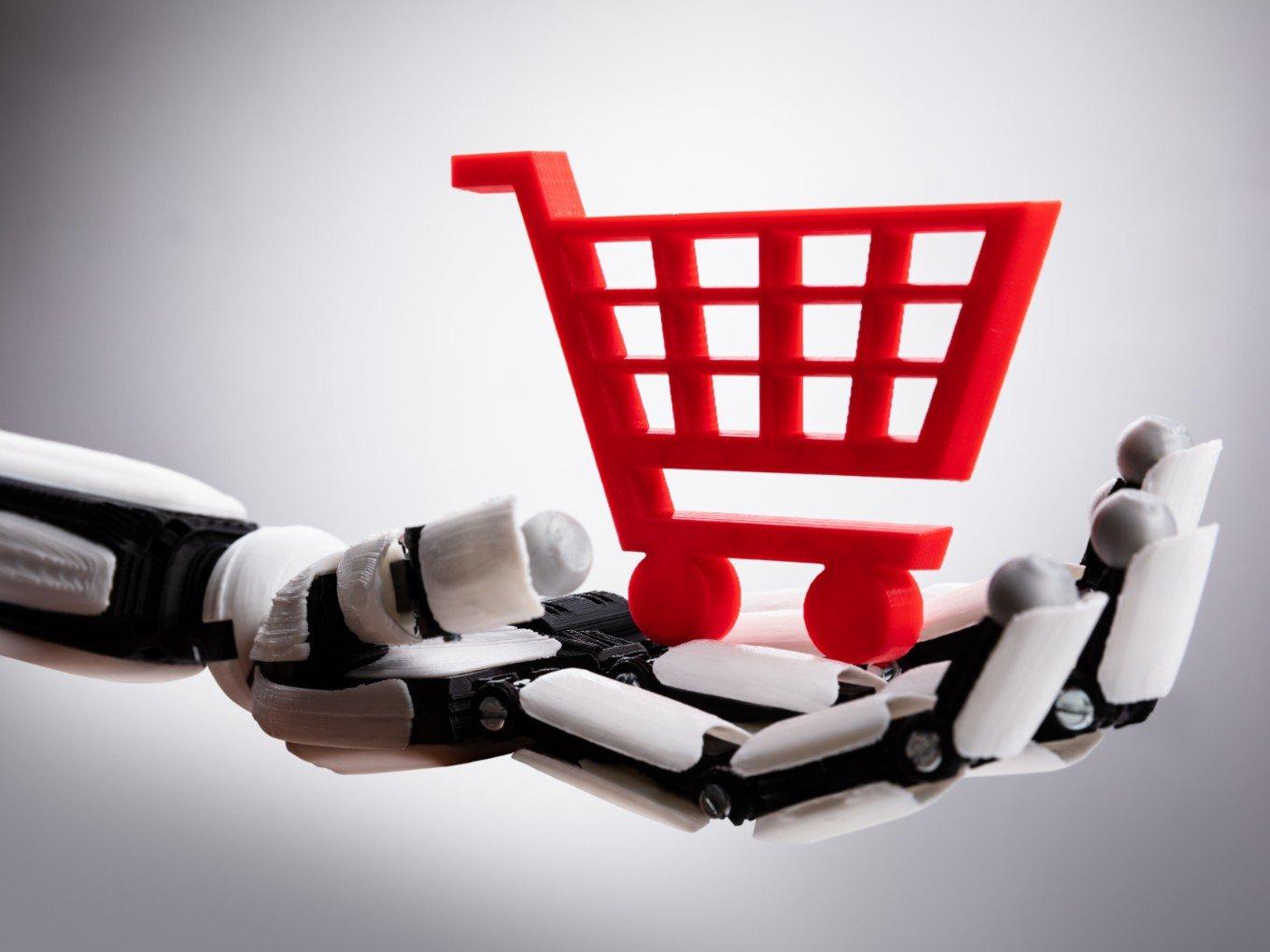
Ecommerce platforms are constantly reinventing their user experience
E-retail platforms are investing heavily in AI technology to radically improve user experience and drive sales
AI was driving north of $1 Bn in incremental marketplace sales, says Tom Pickney
Have you ever wondered how the digital ads displayed on your social media accounts manage to match your key interests as well as past searches for items on ecommerce platforms? Well, this is because an intelligent machine is using your search data to customise its marketing just for you! Be it dynamic messaging, chatbots or personalised marketing, most of it has been made possible because of automation and artificial intelligence.
From automating customer service to prioritising voice search to auto reading OTP, ecommerce platforms are constantly reinventing their user experience to capture a larger share of the e-retail market. As competition increases in the ecommerce domain, the thrust now is on offering the most personalised and convenient experience to buyers. Not only is this aimed at attracting new users to the online shopping segment but also to gain an edge amid the competition with the digital and offline domain.
According to a recent study by Statista, over 2 billion customers will start shopping online by 2021. The rapid increase in the demand for online goods has forced companies to become more creative with their online marketing strategies. Interestingly, the increasing use of artificial intelligence is driving the current round of reinvention among ecommerce platforms.
Ecommerce Platforms Invest Heavily In AI Technology
According to market intelligence and content management firm Netscribes, more than 1200 patents have been filed since 2012, and most of them focus on the use of artificial intelligence in the ecommerce and retail segment. Firms such as eBay, Amazon, Google Inc., IBM, Microsoft, and Facebook have successfully consolidated their dominance in this space over the last five years.
According to Tom Pickney, Vice President of applied research at eBay, artificial intelligence was driving north of $1 Bn in incremental marketplace sales. If retailers and brands want to survive long term in the constantly evolving business environment, they need to keep an eye out for futuristic technologies that have the potential to disrupt existing business models.
Personalization Is The Mantra
Understanding the needs of customers and customising your offering to suit their needs is key to driving sales. The better companies understand customer preferences, requirements, likes and dislikes, the better they will be able to help them find what they want.
Till now, personalisation was restricted to maintaining information like ‘search history’, ‘site navigation’ or ‘purchased goods’. However, AI uses logical reasoning algorithms that facilitate better pattern analysis to more accurately gauge what the customer is thinking and planning to buy.
AI tools can keep track of visitors’ actions and browsing data in real-time. Marketers are increasingly using this data to group customers according to their activities and interests. Once the customers are grouped, they can use the information to offer personalised recommendations, deliver notifications and messages, and suggest products that are relevant to the taste of the customer.
Voice Search Gains Precedence
According to a recent study, 20% of all web searches will be conducted via voice search by 2020. With the rise of devices like Echo, Alexa, Siri and Google Home, customers can now easily search for products using their voices. Businesses need to ensure that their products can be found easily using the voice search feature.
Voice search lets people search for items without the help of a phone or a laptop, making the experience more efficient. In addition to voice search, marketers also need to start planning for visual search, as the day is not far when customers will start searching for products using images.
Some companies have already started creating apps that allow users to search for a product using a photograph. All of this would be impossible without AI and machine learning.
Automation Of Customer Service
Companies have increasingly started to hire mobile app development companies to create apps for improving user interaction and increasing customer retention. AI chatbots offer an equally, if not more, efficient alternative. For instance, long waiting time is one of the biggest reasons companies lose sales. Real-time chatbots can respond to user queries within seconds. Chatbots can also handle multiple user queries at the same time, reducing the workload.
AI is self-learning, and makes continuous interactions with the environment, allowing it to develop familiarity. They store and learn from all the human inquiries, conversations and service requests, learning and evolving with each iteration.
If the AI program is unable to respond to a query, it is passed on to a human, and the program will learn from that interaction so that the next time a customer comes up with the same query, it is able to provide a quick solution. By using the data it gathers from the various conversation, requests, navigation and purchase patterns, it is able to direct the right offers, advertisements, notifications and messages to the right customers.
The Need To Evolve
It is not possible for marketers to keep track of customer activity every time they are online. They might have no idea why a particular customer abandoned the cart, but an automatically scheduled email can help collect information that lets them know why and invite the customer back to complete their purchase. AI-based marketing tools have endless potential for learning and understanding from customer behavior. Marketers need these tools at their disposal for crafting effective e-commerce marketing strategies and improve customer experience and satisfaction.































 Ad-lite browsing experience
Ad-lite browsing experience